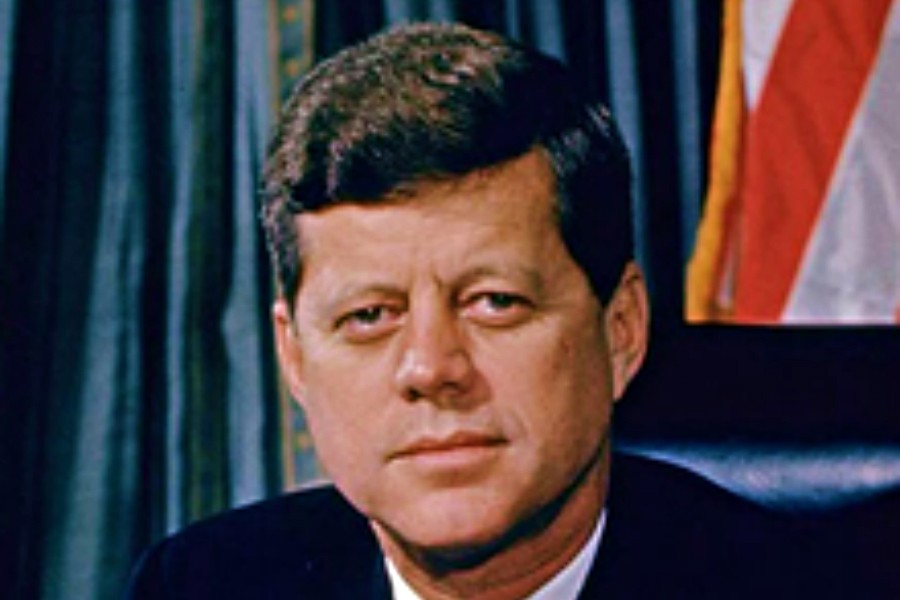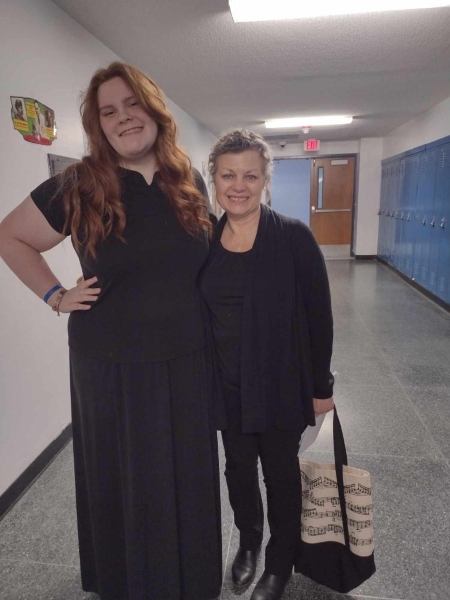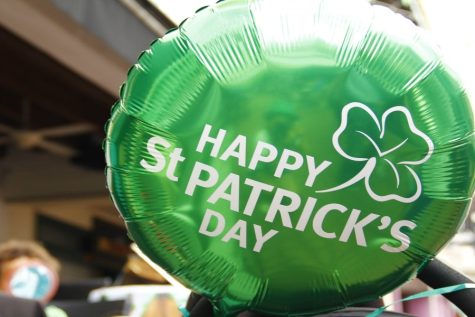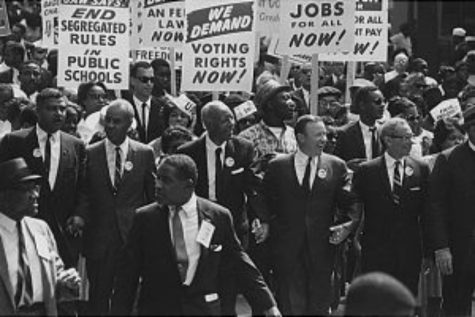Kennedy’s birthday reminds America of what once was
IMAGE / Wikimedia Commons
John F. Kennedy served as the 35th president of the United States.
John Fitzgerald Kennedy was born May 29, 1917.
Kennedy served as the 35th president of the United States from January, 20, 1961, until his assassination on Nov. 22, 1963.
Born in Brookline, Mass., Kennedy lived there for 10 years, attending the Edward Devotion School, the Noble and Greenough Lower School, and the Dexter School through fourth grade.
Kennedy’s family then moved to Riverdale, Bronx, New York City, two years later moving to Bronxville, N.Y.
In September 1936, Kennedy enrolled at Harvard College and spent his underclassman days on the varsity swim team. As an upperclassman, Kennedy developed an interest in political philosophy.
In 1940, Kennedy graduated from Harvard, receiving a degree in international affairs.
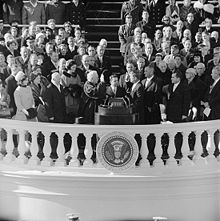
Kennedy takes the oath of office administered by Chief Justice Earl Warren on Jan. 20, 1961, at the Capitol.
In 1941, he joined the U.S. Navy. He was an ensign, serving in the office of the Secretary of the Navy.
In 1946, Kennedy ran for a seat in the House of Representatives, winning by a large margin. His term began in 1947 and he served for six years.
After leaving the House, Kennedy served as a Massachusetts state senator from 1953 to 1960.
On Jan. 2, 1960, Kennedy began his campaign for presidency.
At a democratic convention that year, he gave his famous “new frontier” speech, letting the United States know of his plans to get man into space.
“We stand today on the edge of a New Frontier … But the New Frontier of which I speak is not a set of promises—it is a set of challenges,” Kennedy said during his speech. “It sums up not what I intend to offer the American people, but what I intend to ask of them.”
Kennedy asked the people of the United States to unite to create a better nation.
Ask not what your country can do for you — ask what you can do for your country.
— Kennedy, 1961
The speech gained the public’s attention, and Kennedy’s campaign began to gain momentum. His main opponent in the debate was republican candidate Richard Nixon. On Nov. 8, Kennedy defeated Nixon in one of the closest presidential elections of the 20th century.
The 43-year-old Kennedy was sworn in Jan. 20, 1961, making him the youngest president to that date. In his inaugural address, he told the nation of the need for Americans to be active citizens, saying one of his most famous quotes: “Ask not what your country can do for you — ask what you can do for your country.”
Junior and History Club president Konstantinos Zaravelis admires how Kennedy made ample charity donations during his lifetime.
“He donated his entire salaries from being in Congress and president to charity,” Zaravelis said. “Kennedy’s father was pretty rich, making it so when Kennedy started working for Congress, trusts from his father gave him a nice income. That’s what made him want to donate his salary to different charities.”
This is an uncommonly-known fact, considering Kennedy did not believe he should be honored by the public for merely donating money.
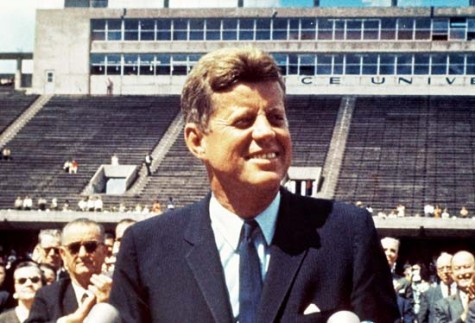
Kennedy speaking at Rice University on Sept. 12, 1962.
As president, Kennedy performed a lot of feats, including his establishment of the Peace Corps, and his efforts in the space race by initiating Project Apollo.
Mr. Ed Councilor, history teacher, believes that Kennedy impacted the United States.
“(Kennedy) gave the American people, especially the young, a sense of great pride, along with the belief that anything can be accomplished,” Councilor said.
During the Cuban Missile Crisis of 1962, where the CIA caught wind of Soviet ballistic missiles stationed in Cuba, Kennedy made the choice not to go into nuclear combat with the Soviet Union or use the given opportunity to invade Cuba.
He eventually negotiated with the Soviets to make them remove their weaponry from Cuba.
Many of the things that Kennedy did are overlooked, according to Mr. Rob Markwardt, history teacher.
“JFK is often forgotten as an income tax reducer,” Markwardt said. “His policy of a reduction of individual income tax rates benefited Americans as well as future presidents.”
(Kennedy) gave the American people, especially the young, a sense of great pride, along with the belief that anything can be accomplished.
— Mr. Ed Councilor, history teacher
In his 1963 State of the Union address, Kennedy proposed the reduction of income tax rates from 20 to 90 percent to a lower range of 14 to 65 percent. He also proposed to reduce corporate tax rates from 52 to 47 percent.
Congress did not put Kennedy’s suggestions into action until 1964, when the top tax rate was lowered to 70 percent.
During his presidency, Kennedy made efforts in the civil right’s movement, increased U.S. involvement in the Vietnam War, established Police Week, and many other things.
However, Kennedy’s presidency ended when he was assassinated on Nov. 22, 1963, while he was on a political trip in Dallas. His vice president, Lyndon B. Johnson, then took office.

Class: Senior
Extracurricular Activities: Drama Club, Thespian Society, National Honor Society
Sports: Soccer
Hobbies/Interests: Reading, Writing,...

